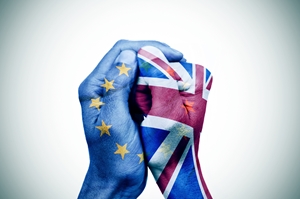Towards the end of last month and some 17,000 kilometres away, the United Kingdom voted to leave the European Union (EU) and walk its own path without the security of the established trading block.
On June 23, millions of Britons cast their votes on exiting the EU, and the results soon revealed the surprising decision. A majority of 52 per cent of voters said they wished to leave the EU, making Brexit a very real thing.
The aftermath has been huge. UK Prime Minister David Cameron announced his resignation shortly after, as did Leave Campaign leader and Member of Parliament Nigel Farage. The overall tone since the country made its intentions clear about leaving the European trading block has been one of uncertainty, which is never a good element for a self-managed super fund (SMSF).
The overall tone since the UK left the European trading block has been one of uncertainty.
Many SMSF trustees will likely be wondering if the waves of Brexit will reach our shores. In a global economy, many will find it has – and could continue to do so. So, what could Brexit mean for your SMSF, and what are your options?
Brexit and self-managed super funds
After Brexit was announced, many investors lost confidence in UK companies, and many shares were hit hard. Barclays bank, for instance, saw its share price fall by 17 per cent for two consecutive days immediately after the Brexit decision, halving its value in the past 12 months, according to Bloomberg.
Before Brexit results came through, the Australian dollar stood at more than 1.96 to Great Britain’s pound sterling, before the latter nosedived to 1.81 in a matter of hours, XE’s stats show. It’s been trending downwards ever since.
It makes certain shares and currency holdings of a higher risk, which could scupper the investment strategies of some SMSF trustees.
Diversifying your portfolio
Whether it’s due to Brexit of any other kind of economic uncertainty, a diverse SMSF investment portfolio is likely to be a safer option.
After all, the economic woes of the UK since Brexit have been based on uncertainty. Company values fell because the outlook for businesses that operate in or with the UK became a little bit more unknown. You won’t want uncertainty to be a word you use too often when it comes to your SMSF.
A diverse portfolio will often include lower-risk investments, such as term deposits, as well as higher-risk, longer-term options, such as shares or property. It could be something to consider when the economic outlook is a little unclear.
 Since Brexit, the pound’s strength has plummeted.
Since Brexit, the pound’s strength has plummeted.Of course, every SMSF situation is different, so it’s essential to speak to your financial adviser before making any changes to your investment strategy.
For expert help with your SMSF in Bankstown, contact the team at DBS Accountants. We’re not just a small-business accounting firm; we help individuals keep their SMSFs in check and compliant with ATO regulations.
Give us a call on 02 9796 4500 to talk about your SMSF.
Rajeev Dixit is Authorised Representative 1239763 of Merit Wealth Pty Ltd, Australian Financial Services Licence 409361, ABN 89 125 557 002
This information has been prepared without taking into account your objectives, financial situation or needs. Because of this, you should, before acting on this information consider its appropriateness having regard to your objectives, financial situation or needs.

